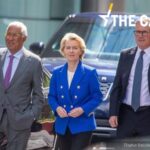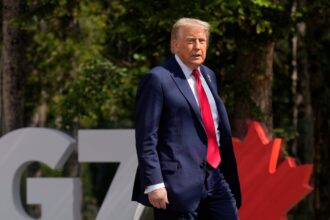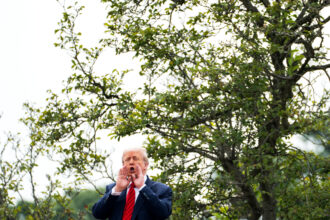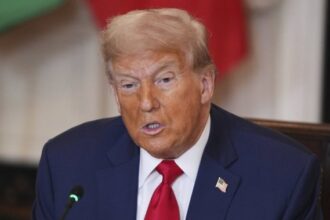Finance ministers and central bank governors from the world’s most advanced economies have convened in Stonewall, Manitoba for the G7 finance meeting against a backdrop of mounting global economic pressures. The three-day summit, hosted by Canadian Finance Minister Chrystia Freeland, faces the immediate challenge of addressing Ukraine’s urgent financial needs while navigating increasing trade tensions between allies.
As delegates gathered at the rustic Breezy Bend Country Club outside Winnipeg, the pressing issue of Ukraine’s $50 billion funding gap dominated early discussions. Ukrainian Finance Minister Serhiy Marchenko, invited as a special guest, presented Kyiv’s case for continued financial support amidst Russia’s ongoing military offensive that has strained Ukraine’s economy to breaking point.
“The financial situation in Ukraine has become critical,” said Bank of Canada Governor Tiff Macklem. “Without substantial international support, we risk seeing a complete collapse of their financial system, which would have far-reaching implications beyond their borders.”
The discussions in Manitoba come at a particularly sensitive moment following U.S. President Joe Biden’s decision to raise tariffs on $18 billion worth of Chinese imports, including steel, aluminum, and critical minerals. This move has created noticeable friction among G7 partners, particularly as U.S. Treasury Secretary Janet Yellen has simultaneously urged allies to maintain a united front on sanctions against Russia.
European representatives have expressed concerns about the potential ripple effects of America’s tariff policy. “While we share concerns about unfair trade practices, unilateral actions risk fragmenting the global economic system we’ve built together,” remarked a senior European finance official who requested anonymity.
The Canadian hosts have carefully structured the agenda to balance immediate crises with longer-term strategic considerations. Finance Minister Freeland emphasized the need to strengthen economic resilience against authoritarian threats while maintaining the competitiveness of democratic economies.
“This meeting isn’t just about addressing today’s challenges but building the foundations for sustainable prosperity that aligns with our democratic values,” Freeland stated during her opening remarks. “We cannot separate our economic strategies from our broader commitment to international rules and norms.”
Behind closed doors, discussions have also touched on the contentious issue of frozen Russian assets. The United States has advocated for using these assets to finance Ukraine’s reconstruction, while European countries have expressed legal concerns about outright confiscation. A compromise proposal involving using only the interest generated from these frozen reserves has gained traction among some delegates.
The Japanese delegation has raised concerns about currency volatility, particularly as the yen has reached multi-decade lows against the dollar. This currency discussion intersects with broader debates about coordinating monetary policy as several G7 economies prepare to potentially cut interest rates in the coming months.
Climate finance has remained on the agenda despite the more immediate geopolitical pressures. Canada has pushed for discussion on innovative financing mechanisms to help emerging economies transition to cleaner energy sources without increasing their debt burdens.
“The intersection of climate policy and financial stability represents one of our most complex long-term challenges,” said Pierre Gramegna, head of the European Stability Mechanism, who is attending as an observer. “Solutions require both technical innovation and political will.”
As the meetings continue through the weekend, observers note that the remote Manitoba location seems deliberately chosen to foster frank discussions away from media scrutiny. The informal setting at Breezy Bend, with its prairie landscape and distance from major urban centers, has created an atmosphere where difficult negotiations might find resolution.
Will this G7 finance meeting demonstrate that economic coordination among democracies can effectively counter both immediate crises and systemic challenges, or will diverging national interests ultimately undermine the group’s ability to present a united front in an increasingly fractured global economy?

























